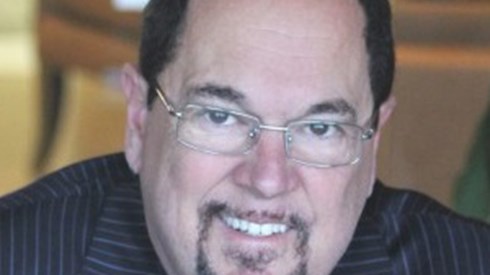NRRA Chairman Michael Schroeder Says RRGs Are Very Good at What They Do

September 23, 2019

Michael J. Schroeder, current chairman of the National Risk Retention Association (NRRA), has a wide range of experience with risk retention groups and risk purchasing groups. He is, for example, chairman and vice president of the Allied Professionals Insurance Co., a 16-year-old Arizona licensed risk retention group (RRG) that provides professional liability and general liability insurance coverages to medical professionals and students. Mr. Schroeder also is an executive with two risk purchasing groups, the National Chiropractic Council and the American Acupuncture Council. Mr. Schroeder discusses various RRG issues, including the growth of the Allied RRG and the likelihood of Congress passing legislation to expand coverages that RRGs can offer, as well as the accomplishments of the NRRA.
Nearly 4 decades ago, Congress passed legislation to allow employers to band together to form a new kind of captive insurance company: risk retention groups (RRGs). RRGs, unlike other captives, could do business in any state after meeting the licensing requirements of just one state. However, under the 1981 Liability Risk Retention Act (LRRA), RRGs could only write product liability and completed operations coverages for policyholder-owners. Not surprisingly, given that limitation in coverages, only a handful of RRGs were formed. In 1986, Congress passed legislation to allow RRGs to write all casualty coverages, except workers compensation. With that expansion, dozens of new RRGs were launched, with the number of RRGs peaking a few years ago at about 260. Today, just over 220 RRGs are operating. How do you explain that decrease, and do you see a turnaround with new RRG formations on the rise?
RRGs are traditionally born of hard markets where traditional insurers won't insure smaller, more nontraditional risks like acupuncturists, cross fit trainers, and hang gliding companies. The management running these types of businesses knows the risk really well, and they tend to have great underwriting results. This current soft market phase doesn't drive RRG formation. Instead, what drives RRG formation now is something very different. It is that RRGs are regulated in one state and can operate in 50 states. Some traditional insurers have found this attractive and have formed their own RRGs.
For years, the RRG industry has been pressing federal lawmakers to expand the LRRA to enable RRGs to write property coverages for member-owners. That effort, though, has not attracted widespread congressional interest. Do you see that changing with Congress one day expanding the LRRA?
I do think at some point Congress will take up amending the LRRA and allow RRGs to write property coverage. I do not think that will be soon, though. Given the ease that RRGs can get property coverage from traditional insurers for their member insureds, there simply isn't much urgency.
For many years, some state insurance commissioners made it difficult for RRGs to operate. Some speculate that hostility was driven by state insurance regulators' resentment that they could not regulate RRGs to the same degree as other insurance companies. Has that resentment eased in recent years and, if so, why?
State regulatory hostility to RRGs has eased somewhat. This has abated somewhat due to a long series of court victories by the National Risk Retention Association and the RRG industry. Many states, though, still illegally charge RRGs fees to register, which is banned by the LRRA. This issue will ultimately be addressed by litigation if it is not resolved.
What do you feel have been the major accomplishments of the National Risk Retention Association?
The primary victories by NRRA have been court decisions upholding RRGs' independence under the LRRA and gaining LRRA compliance from the National Association of Insurance Commissioners and individual state regulators by way of advocacy and lobbying.
Even at a time of a soft commercial insurance market, some RRGs have continued to grow. How do you explain that growth?
RRGs are very good at what they do, so they become a stable source of affordable liability insurance. For example, Allied Professionals, the company I chair, has continuously provided affordable coverage for acupuncturists. All other companies have come and gone depending upon hard and soft market cycles.
Tell us about the RRG that you chair: Allied Professionals Insurance Co. Risk Retention Group. Where and when was it licensed, to whom does it offer coverages, what kind of coverages are offered, and how has the RRG grown over the years?
Allied Professionals Insurance Company, RRG was born of the hard markets of the 1985–1986 era. Every insurer left acupuncture, and all but one left chiropractic. There were no affordable options. My background was as a lawyer who represented these professions' associations. Given no other options, we first formed risk purchasing groups for each profession and then an RRG. To put it mildly, growth was slow in the beginning; we finished 1986 with only 34 member insureds. We continued to exercise the knowledge we had as to how to insure these risks and experienced 20 percent year-over-year growth in number of insureds. We now insure over 150,000 acupuncturists, chiropractic doctors, massage therapists, naturopaths, naprapaths, herbalists, and other alternative healthcare providers.
Based on your own experience, what are some of the key factors that can lead to an RRG's success?
Underwriting discipline. Stay in your lane. One chiropractic doctor insurer decided to insure lawyers. We can all guess easily how that went.
Roughly one-third of all RRGs are licensed in Vermont. How do you explain Vermont's success attracting RRGs, and what other states are popular RRG domiciles?
Vermont is a great domicile for both RRGs and the consumers that are insured by them. Vermont does not race to the bottom and take borderline captives and RRGs. They make sure that their RRGs are solvent and well run. In addition, rather than quarreling with what Congress did in passing the LRRA, they embraced it and made it work. They have been a constructive mediating force as opposed to states that try to illegally regulate Vermont-domiciled RRGs.
What do you see as the future for the RRG industry?
The future is good for any business sector that does a great job filling a need that our citizens have. As each market cycle shows the advantage of RRGs, both the number and size of RRGs will continue to grow.
Mr. Schroeder is pictured above. (Courtesy photo.)
September 23, 2019





